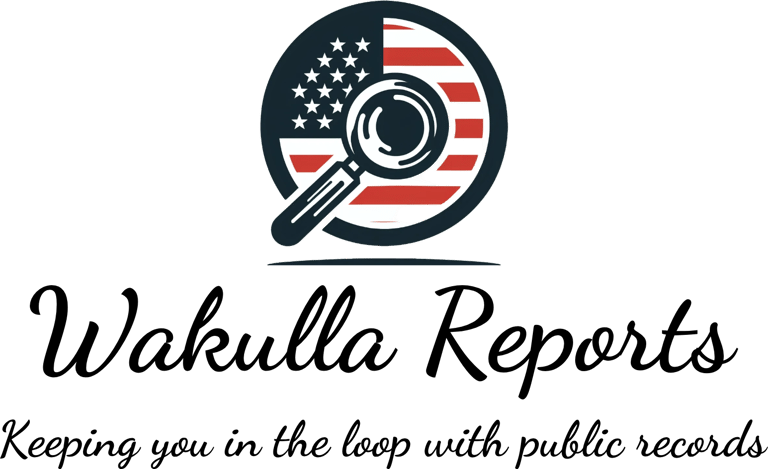How to Obtain Records: Paid Resources and Organization
Discover effective strategies for how to obtain records and how to safeguard them. From internet search tips to exploring historical court cases, learn about essential resources like the Wayback Machine and PACER. Bookmark this guide to streamline your information search!
TOOLS YOU CAN USE
Josephine Baker
2/20/20254 min read


Introduction to Advanced Public Records Tools
With the advent of technology, individuals now have access to a variety of advanced tools that streamline the process of acquiring these records. These tools can be particularly advantageous in situations where time is of the essence, or when the volume of data needed is substantial. By leveraging advanced public records systems, users can uncover vital information such as court records, property ownership details, and vital statistics much in a one stop shop instead of having to source them individually from multiple resources.
Overview of Popular Paid Websites for Public Records
BeenVerified is widely recognized for its extensive database, which includes information from public records, social media profiles, and criminal records. Users can access data pertaining to individuals, phone numbers, emails, and property records. One of the key advantages of BeenVerified is its user-friendly interface, which allows users to conduct searches efficiently, making it suitable for both novice and experienced investigators. Subscription options are flexible, often including an unlimited search capability that can facilitate deeper inquiries.
TruthFinder differentiates itself with strong emphasis on criminal records searches. This platform not only provides data on criminal histories but also compiles information related to arrests, convictions, and sexual offender registries. TruthFinder also offers an in-depth background check service, including insights into a person's social media activities and online presence. Their subscription typically grants access to all available reports, ensuring users receive comprehensive insights when assessing an individual’s background.
Intelius, another formidable contender, offers a broad array of services, including criminal checks, public records searches, and people searches. Its distinct feature is the ability to verify someone's current address and past locations, which is crucial for those trying to locate individuals. The website is noted for its straightforward navigation and detailed reporting, allowing users to understand the data presented easily. Intelius also provides a mobile-friendly experience, further enhancing accessibility.
While the author does not endorse any of these specific websites, I can tell you that the subscriptions hover somewhere in the ballpark of $30/month.
Overview of Not So Popular but Useful Resources
In this section I will specify those resources that are not obviously free. A good starting point is Google; despite its cliché status, it remains a powerful tool for research. Expand your quest by utilizing alternative search engines like Brave, Qwant, and DuckDuckGo, ensuring to navigate through different pages and experiment with various search terms.
Another invaluable resource is obituaries, which are typically free to access online. They can reveal significant insights into familial connections. By conducting a Google search using a last name combined with “obituary” and the relevant city, you can uncover surprising networks and relationships. This straightforward approach can significantly enhance your understanding of family histories and interrelationships. Combine this with a Sunbiz.org corporation search by registered agent/principal and you are well on your way!
Job boards and professional networking sites can serve as fruitful resources for information on your selected subject. Platforms such as Indeed, Glassdoor, LinkedIn, Monster, and CareerBuilder provide insights into company culture, employee experiences, and individual behavior. Additionally, they facilitate tracking networks of professional connections. By leveraging these platforms, information seekers can enhance their knowledge of employment habits and networking across organizations.
PACER, which stands for Public Access to Court Electronic Records, is a valuable online service that provides the public with access to federal court records. Users can easily search for cases across federal appellate, district, and bankruptcy courts through a comprehensive nationwide index. The platform allows individuals to view court records for both open and closed cases filed on or after December 1, 2003. Anyone interested can register for a free account; however, a fee of $0.10 per page applies once logged in to access the court records. Notably, users who spend less than $15 within a calendar quarter are exempt from these fees, making PACER an accessible resource for those seeking information on federal court cases.
Maximizing the Fruits of Your Labors - SAVE IT!
In today's digital age, the vast amount of information readily accessible online has led to the emergence of services designed to enhance individual privacy and reduce online visibility. These paid services, often utilized by public figures, allow users to obscure their political, social, and personal histories, thereby crafting a more favorable online persona. However, this practice can lead to situations where previously obtained documents about an individual suddenly become unavailable. To address this phenomenon, I propose two effective remedies that can help maintain access to your newly discovered crucial information: The Wayback Machine and organization of your documents.
The Internet Archive Wayback Machine is a great tool for anyone interested in exploring the rich history of the web. By allowing users to enter a URL and select a specific date range, the Wayback Machine provides access to archived versions of websites that might otherwise be lost to time. Although the search process can sometimes be unpredictable, it offers a unique opportunity to discover content that may have been intentionally obscured or removed. From forgotten blogs to long-lost documents, the Wayback Machine serves as a treasure trove of internet history, making it a must-visit resource for researchers.
SAVE YOUR WORK! I personally prefer to save my files onto an external hard drive, ensuring that my information is portable and safeguarded, regardless of my computer's status. To keep everything organized, I create folders that categorize my findings into different batches—often based on individuals, years, and sources related to my subject of inquiry. This systematic approach makes it easier to locate information later, when I stumble on another piece to the puzzle. Always remember, a little diligence in saving your work goes a long way in preserving your efforts and insights.
As you explore these resources, safeguarding your personal information should be a priority. Be aware of the privacy policies governing the platforms you utilize and avoid sharing sensitive information unless absolutely necessary. Understanding the implications of your data sharing and its potential impact helps to facilitate the balance between public interest and personal privacy. By adhering to a considerate logic , your experience with public records requests, information gathering, and sharing your success will be both productive and rewarding.

Additional Social Links
YouTube is your go-to for short clips, video explainers, and visual breakdowns of how Florida and Wakulla governments really work.
Facebook brings you bite-sized written content, sticky-note facts, and rolling updates you can share and discuss.
Prefer to browse at your own pace?
Bookmark our website and visit anytime for fresh posts, resources, and real-life examples from right here in Wakulla County.
© 2024. All rights reserved.
